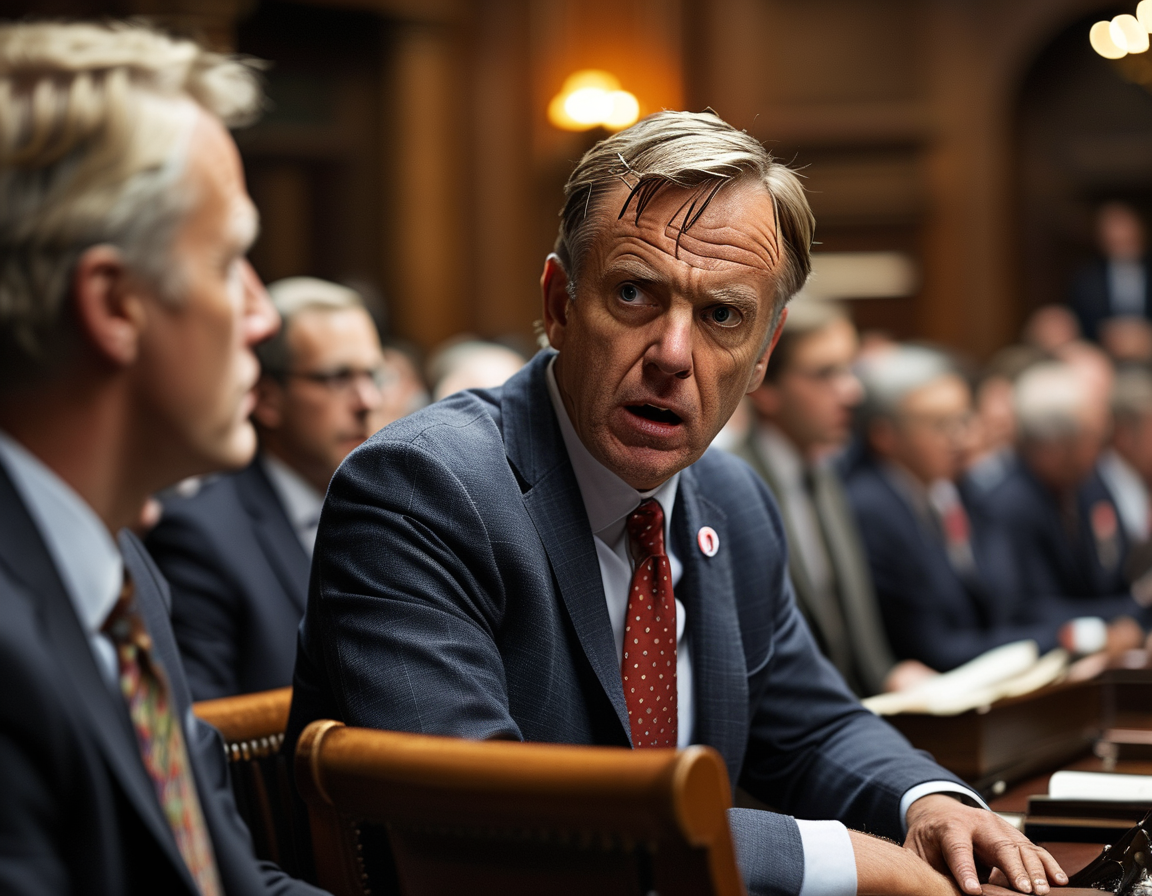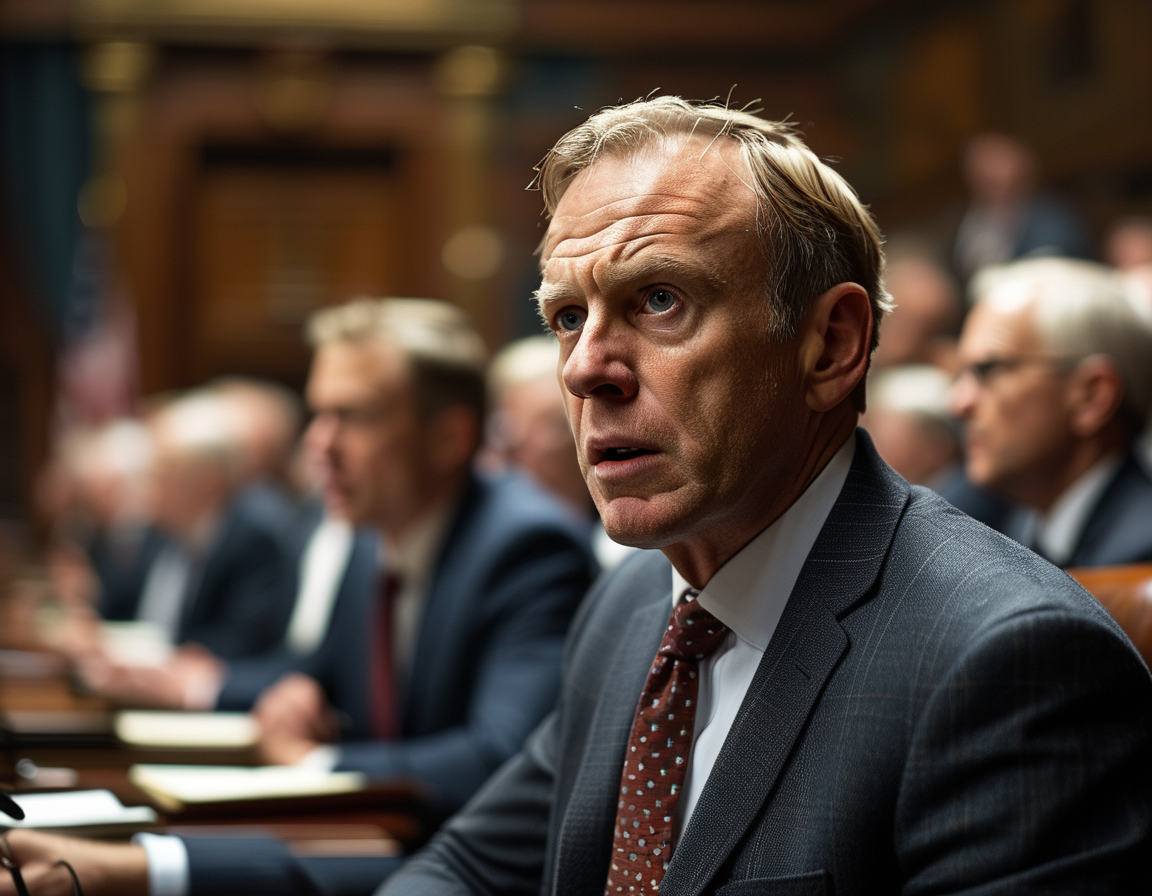The House of Representatives just faced a whirlwind of events. In a scene almost cinematic in nature, whispers echoed through the chamber as phone calls were made. It began with a few GOP rebels opting to vote against Mike Johnson. Their acts threatened to spark a drawn-out struggle. But then, a familiar name entered the fray—Donald Trump.

As Johnson fought for the speakership, the tension was palpable. Two key lawmakers, Rep. Ralph Norman and Rep. Keith Self, had initially chosen to cast their votes elsewhere. What led them to change course just moments later? Sources revealed that Trump reached out personally, with impactful conversations brewing in an unexpected side room. House members were left wondering—had the former president used his influence to sway the vote?
Rep. Nancy Mace’s role cannot go unnoticed. A figure in the GOP, she was seen huddling with Johnson, showing the sort of camaraderie that catches attention. What does it mean in a political landscape often punctuated by division? Mace reportedly connected both holdouts to Trump post-vote, an act that strayed behind the curtain of typical politics. Mace’s hug with Johnson symbolized a fragile alliance amidst the chaos.

As the tension boiled, Self and Norman emerged from their private talks with renewed resolve. They announced their votes for Johnson, setting the stage for a remarkable turnabout. The clock was ticking, and with each moment, Johnson’s chances grew. Was the pressure from Trump and the GOP’s unified front enough to break the impasse?
Adding another layer to this political drama, Self admitted to reporters about a conversation with Trump, describing it as ‘lively.’ But was there more to that discussion? Political dynamics often murky, what could have been said behind closed doors? Important questions linger, compelling us to dig deeper:

How does one rally support in a fractured party? In Johnson’s case, he emerged from this tumultuous vote unscathed, a testament perhaps to astute leadership.
Amidst the snippets of conversations and emotional gestures, a significant victory was not just Johnson’s but also the GOP’s return to a semblance of stability. The episode illustrates the wavering lines of power and support within the party. Leadership changes can be transformative, but are they permanent? Will Johnson maintain his backing or will whispers of dissent rise again?
Amidst the sweeping change, there is a thread of uncertainty. But for now, Republicans might feel they’ve narrowly averted disaster. For many standing at the crossroads of dissent and support, Johnson’s leadership may herald a new chapter. Observers will be left to wonder—is this the kind of leadership the House needs now? Or does this volatile dance of politics set the stage for future upheavals? Either way, the drama within the House underscores the intricacies of political alliances—the very lifeblood of our democratic process.




